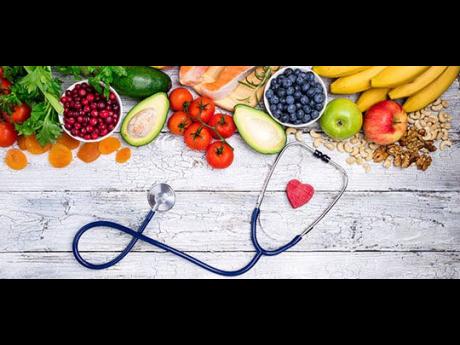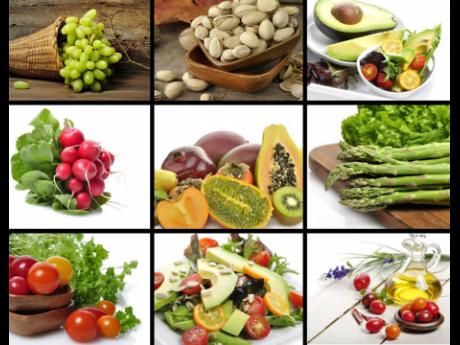Using food to build the immune system
During this time of uncertainty due to the coronavirus pandemic, persons are being bombarded with, and constantly reminded of, measures to take in order to stay safe and avoid contracting the virus. There is another step that people should take to ensure that they are able to fight off diseases and illnesses by fortifying our immune systems.
According to Dr Claudia Campbell, clinical nutritionist, food is one of the best ways to help strengthen the immune system and fight off diseases.
“Adequate and appropriate nutrition is required for all cells to function optimally and this includes the cells in the immune system,” Dr Campbell said, “Processed foods, including candy, soda, fast food, and snack foods, contain empty calories that do not provide your body with nutrients such as vitamins or fibre.”
She added that eating processed foods, instead of foods in their natural, unprocessed forms, will leave one’s body deprived of the nutrients that it needs to thrive. As such, the doctor recommends that we ignore the processed foods in favour of more healthy options.
“Fruits and vegetables in a wide array of colours provide the best mix of protective antioxidants to boost overall health and immunity,” Dr Campbell explained. “Eat leafy greens, watermelon, carrots, berries, broccoli, oranges, ortanique, cantaloupe, and other brightly coloured produce (sweet potato, pumpkin, carrots) to give your cells and immune system all the natural protection they need to function at their best.”
She also recommends our traditional, home-made ‘Saturday soup’ with carrots, celery and other vegetables as an immune booster. She added that black or green tea is also a good beverage to have.
The question remains, though, how does one maintain a quality diet in the midst of a pandemic and the effects it has had on the nation’s finances and availability of certain products? Dr Campbell suggested the following:
1. Plan your meals for the week and make a grocery list. Only buy what you’re sure you will use, and check out what you already have in your cupboards first.
2. Stick to your grocery list. Once you’ve planned your meals and made your grocery list, stick to it.
3. Cook at home. Cooking at home is way less expensive than eating out. Some find it best to cook for the entire week on weekends, while others like to cook one meal at a time.
4. Cook large portions and use your leftovers.
5. Buy whole foods. Whole foods are often less expensive than their processed counterparts. You can also buy them in larger quantities. Whole grains, like brown rice and oats, are cheaper per serving than most processed cereals; and dried peas and beans are cheaper than canned ones.
6. Buy generic brands. Most supermarkets offer their own brands for nearly any product. These are often of the same quality as more expensive brands.
7. Stop buying junk food. Cut out some of the junk food from your diet. You would be surprised to see how much you may be paying for soda, crackers, cookies, prepackaged meals and processed foods.
8. Buy cheaper cuts of meats, which can be used in stews, soups and stir-fries. These types of recipes usually make big meals and lots of leftovers.
9. Replace meat with other proteins. Try replacing meat once or twice a week with beans, legumes, eggs or canned fish. These are all cheap and nutritious sources of protein.
10. Shop for produce that is in season. Produce that is in season is typically cheaper and more nutritious. If you buy too much, freeze the rest or incorporate it into future meal plans.
11. Buy frozen fruits and vegetables. Frozen fruits, berries and vegetables are usually just as nutritious as their fresh counterparts. They are available all year round and are often sold in large bags.
12. Grow your own produce. With some time and effort, it is easy to grow your own produce, such as herbs, vegetables and some ground provisions.
“Vitamins and minerals that your immune system needs to function at its best include vitamins A, C, D, E, zinc, selenium and magnesium; and these minerals are also critical for the function of many enzyme reactions in the body,” explained Dr Campbell, “Some experts believe that taking a daily multivitamin can help ensure you’re meeting at least your daily minimum requirement for certain nutrients, but be mindful that there are food sources that do provide these vitamins - oysters, shellfish, sweet potatoes, citrus fruits, vegetables, nuts, seeds.”
She noted that a balanced meal is always recommended and that includes a variety of different foods in recommended portions. These requirements can be found on the Food-Based Dietary Guidelines for Jamaica.



